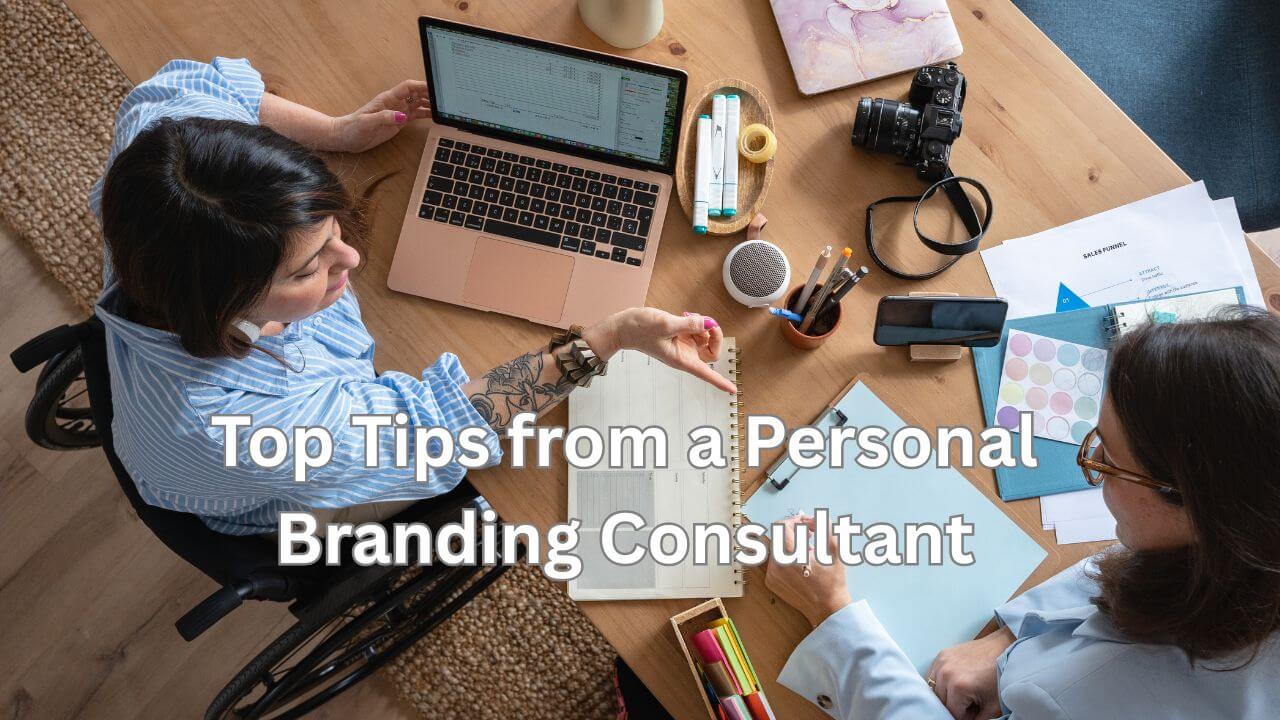Let's start with a simple truth: people don't buy products; they buy stories. And in today's world, you are that story.
Whether you're an entrepreneur, freelancer, professional, or student, your personal brand shapes how people see, trust, and remember you. It's what speaks for you when you're not in the room.
Now, here's where a Personal Branding Consultant comes in. Think of them as your brand therapist; someone who helps you uncover your authentic self, define your unique strengths, and express them with clarity and confidence online.
Your personal brand isn't just your logo, title, or resume. It's the story people tell about you when you're not around. So, if you're ready to stand out and be seen as the go-to name in your field, let's dive into some expert-backed tips straight from a professional personal branding consultant.
What a Personal Branding Consultant Really Does
Before we get into the tips, it's worth understanding what these experts actually do, because it's far more than just helping you "look good online." A personal branding consultant helps you:
- Discover Your Brand Identity: What makes you different, valuable, and trustworthy?
- Craft a Signature Message: The core story that connects with your audience.
- Polish Your Digital Presence: From your LinkedIn profile to your website and Google visibility.
- Position Your Expertise: So people see you as an authority in your niche.
- Grow Your Visibility and Influence: through content, PR, and networking strategies.
In short, they turn your experience into influence.
Expert Tips from a Personal Branding Consultant
Below are the most effective and actionable tips gathered from real-world experience working with professionals, creators, and business leaders who wanted to elevate their personal brand.
1. Know Your "Why" Before You Say Your "What"
Every strong personal brand begins with purpose. Ask yourself:
"Why do I do what I do?" Your "why" gives your brand heart and direction. It's what turns your bio from a list of titles into a meaningful story.
Example: Instead of saying, "I'm a content writer," say: "I help small businesses tell their stories in ways that attract the right customers." That slight shift transforms you from a service provider into a purpose-driven expert.
2. Define Your Brand Identity Clearly
Your brand identity is how people recognise and remember you; your tone, your visuals, your voice, your message. Start by defining three things:
- Your Core Strengths: What are you naturally good at?
- Your Ideal Audience: Who benefits most from your work?
- Your Unique Angle: What makes you different from others in your field?
A Personal Branding Consultant will often use a "Brand Clarity Map," a framework that combines your purpose, passion, personality, and proof. You can do this yourself with honest reflection and feedback from trusted peers.
3. Craft a Magnetic Brand Message
Your brand message should be simple, emotional, and memorable. Ask yourself: "Can someone understand who I am and what I do in 10 seconds?" If not, simplify.
A good brand message is clear and consistent across all platforms: your LinkedIn headline, website bio, and even your email signature.
Here's a quick formula: I help [target audience] achieve [desired result] through [unique method or expertise].
For example: "I help professionals build powerful personal brands through authentic storytelling and strategic visibility."
4. Build an Online Presence That Works for You
Your digital presence is often the first impression people get of you, so make it count. Here's a simple checklist from top personal branding consultants:
- Update your LinkedIn headline and summary with keywords related to your expertise.
- Create a personal website that showcases your work, testimonials, and story.
- Use consistent profile photos, colours, and tone across platforms.
- Post valuable, authentic content regularly: insights, opinions, or even behind-the-scenes moments.
- Google yourself every few months to see what others see.
Your name should appear on credible platforms; that's how authority builds online.
5. Share Your Story Authentically
Stories connect. Credentials impress, but stories inspire. When you share personal experiences, like challenges you've overcome or lessons learned, people see the human behind the professional.
Don't be afraid to talk about your journey:
- The early mistakes you made.
- The turning point that changed your path.
- The reason you love what you do today.
These moments make your brand memorable and relatable.
Remember: authenticity is magnetic.
6. Create Value Before You Ask for Attention
The golden rule of personal branding: give first. Share value through tips, insights, or simple stories that help others. When you consistently educate, inspire, or entertain your audience, they start to trust you.
For instance, if you're a coach, post short, actionable mindset exercises. If you're a designer, share behind-the-scenes of your creative process. Value attracts visibility. Visibility builds trust. Trust leads to opportunities.
7. Be Consistent Everywhere
The secret to powerful branding isn't perfection; it's consistency. From your tone of voice to your colour palette, your online persona should feel cohesive. If your LinkedIn says "leadership coach," but your Instagram bio says "motivational speaker," people get confused.
Stay aligned. Repetition creates recognition. A good rule of thumb: if your audience can describe you in one sentence, you've done your job well.
8. Build a Strong Network
No brand grows in isolation. The people around you amplify your message. Engage meaningfully on LinkedIn or professional communities. Comment thoughtfully, share insights, and support others.
Don't network to get something: network to learn, share, and grow.
That's what builds lasting relationships and organic opportunities.
9. Keep Learning and Evolving
Your personal brand is a living, breathing reflection of your growth. It's okay to change your direction, tone, or audience over time. Revisit your branding every 6–12 months:
- Is your message still aligned with your goals?
- Does your visual identity feel current?
- Have you outgrown your niche?
The most successful professionals evolve, and their brands evolve with them.
Real-Life Example: The Designer Who Found Her Voice
Take Riya, a freelance graphic designer. She used to market herself as "just a designer." After working with a personal branding consultant, she redefined her brand as a "visual storyteller helping ethical startups express their purpose through design."
She started posting her creative process, sharing client stories, and writing small reflections about creativity. Within six months, her following grew by 3x, and her client inquiries doubled. That's the impact of a clear, authentic, and emotionally resonant personal brand.
Common Mistakes to Avoid
Even the best professionals make these branding blunders:
- Trying to appeal to everyone
- Copying others' style instead of owning your own voice
- Neglecting SEO and online visibility
- Being inconsistent in tone or visuals
- Over-promoting without providing value
Avoid these, and you'll already stand out from the majority of professionals online.
Key Takeaway
Your personal brand isn't built overnight; it's built over time, through clarity, consistency, and connection.
Whether you choose to do it yourself or hire a personal branding consultant, remember: the goal isn't to look perfect. It's to be authentically you, but strategic about how the world sees that version of you.
Your story is your strength. Tell it boldly, tell it truthfully and let it shape the opportunities that find you.
FAQs
What does a personal branding consultant do?
They help individuals identify, shape, and promote their unique professional identity both online and offline.
Why is personal branding important today?
Because in a digital world, people often meet your online presence before they meet you, and first impressions matter.
Can I build my brand without professional help?
Yes! Start small: define your message, clean up your profiles, and share value-driven content regularly.
How long does it take to build a strong personal brand?
Usually, 3–6 months of consistent effort is required to start seeing results; faster with expert guidance.
What platforms should I focus on?
LinkedIn for professionals, Instagram for creatives, YouTube for educators, and a personal website for credibility.
How do I make my personal brand stand out?
By being authentic. Share your real journey, speak your truth, and stay consistent. No one can copy you.
How does SEO help in personal branding?
Using strategic keywords (like "personal branding consultant," "career coach," "leadership expert") helps you appear in searches when people look for your expertise.



Leave a comment